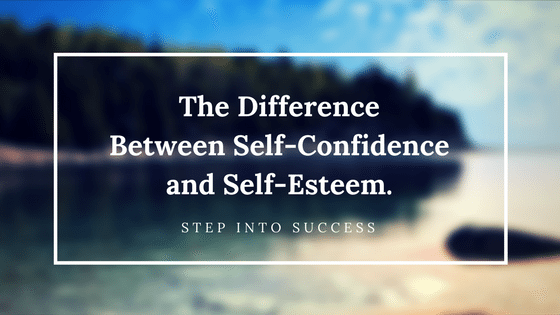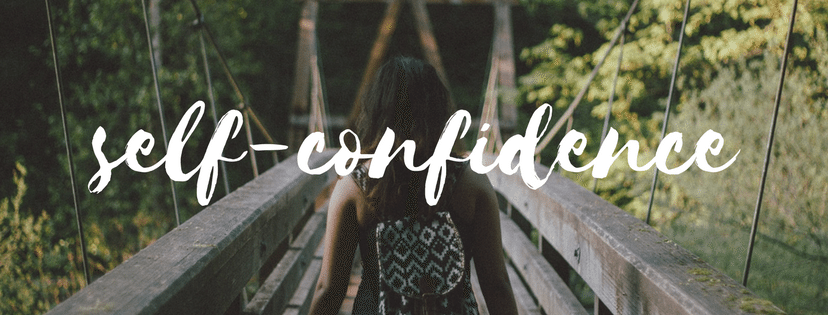
Many people don't know the difference between self-confidence and self-esteem. A lot of people actually think that self-confidence and self-esteem are one and the same. But they are actually very different.
You can be very confident in your skills and in certain areas of your life, while still suffering from low self-worth. In this article, we are going to explore the differences between the two and what you can do to help increase both your self-confidence and self-esteem.

Confidence comes from knowledge and practice. The more experience you have the more confident you will become.
Self-confidence is about trusting yourself and your ability to succeed at new challenges, tasks and opportunities.
Your self-confidence leads to successful experiences, which further builds your self-confidence in those areas.
For example, the more parties you hold, the more you will learn and the better you will be at them. Your bookings will increase, you will maintain high sales every month, and you will welcome new team members to your team.
Even if you have an unsuccessful party, you will still learn from your mistakes and pinpoint the things you want to change.
All of these things will help you build the confidence to go out there and book more.
It is also possible to be confident in some areas of your life and not in others.
For example, I am confident in my public speaking abilities but not in my experience or knowledge to be an accountant.

Most people lean on self-confidence to give them moments of happiness and success, instead of working on their self-esteem.
Rather than facing their imperfections, failures and how they see themselves, they hide behind accomplishments and abilities.
The problem with this is that success in these areas are short-lived. We only feel success and gratification when we excel at something or overcome a new challenge.
Psychiatrist Neel Burton explains:
[feature_box style=”undefined” alignment=”center”]
“People usually find it easier to build their self-confidence than their self-esteem, and, conflating one with the other, end up with a long list of abilities and achievements. Rather than facing up to their imperfections and failures, they hide them behind their certificates and prizes. But…a long list of abilities and achievements is neither sufficient nor necessary for healthy self-esteem. While people keep on working on their list in the hope that it might one day be long enough, they try to fill the emptiness inside them with status, income, possessions, relationships, sex, and so on.”
[/feature_box]

Self-esteem, on the other hand, is about how you feel about yourself and value your worth. And more than that, it helps establish how we think, feel and act.
Much of our self-esteem is established based on the relationships we have and the people we surround ourselves with.
Surrounding yourself with people who are extremely positive helps build your self-esteem and your belief in yourself. Your self-esteem gives you the push you need to learn more, seek new opportunities and network with others.
People with self-esteem also do not feel the need to accumulate accolades or material possessions. They are content with knowing their value and their worth outside of their self-confidence.
[feature_box style=”1″ only_advanced=”There%20are%20no%20title%20options%20for%20the%20choosen%20style” alignment=”center”]
Don't keep going back to people who are going to talk negative to you. Find inspiriational people within your indsutry and follow them. Surround yourself with sucessful people who are positive and who motivate you to want to achieve greater success with your business and in your life.
[/feature_box]

Want to increase your self-esteem? Here are things to do daily:
- Improve your self-talk. Start your day with positive affirmations and learn to refocus your thoughts to something constructive.
- Surround yourself with positive people. Don't let negative people control the way you think about your life or your business. Remember, every negative person has a problem for every solution. Move on!
- Start a journal. Start a journal to share your thoughts and challenges. Also be sure to focus on writing about ways that you have been succeeding. When you are having a down day, go back to those entries and repeat the same habits of that day.
- Get over your perfectionism. Perfectionism stops us from moving forward and completing projects. It paralyzes us because we are so afraid of not being able to live up to a high standard. Instead, understand that there is no such thing as perfect and learn to know when something is good enough.
- Handle mistakes and failures in a more positive way. I like to use this example a lot when I talk about setting goals and it's using a GPS. Say you're driving and you take a wrong turn. Your GPS doesn't say “you're a loser, go home.” It re-calculates and gets you back on track. When you take a wrong turn in life or in your business, re-calcualte.
- Love others. When you spend time being more kind and loving to others, you start to learn treat yourself a little kinder too. Be encouraging to others, do a good deed or even just be a great listener to someone.
- Build your self-confidence. When you begin building your confidence in multiple areas you start to see yourself as a more successful person. Becoming confident in your skills allows you to continue to see your value as a person and build your self-worth.
Tip: Your self-confidence and your self-esteem combined are the perfect recipe for success.
